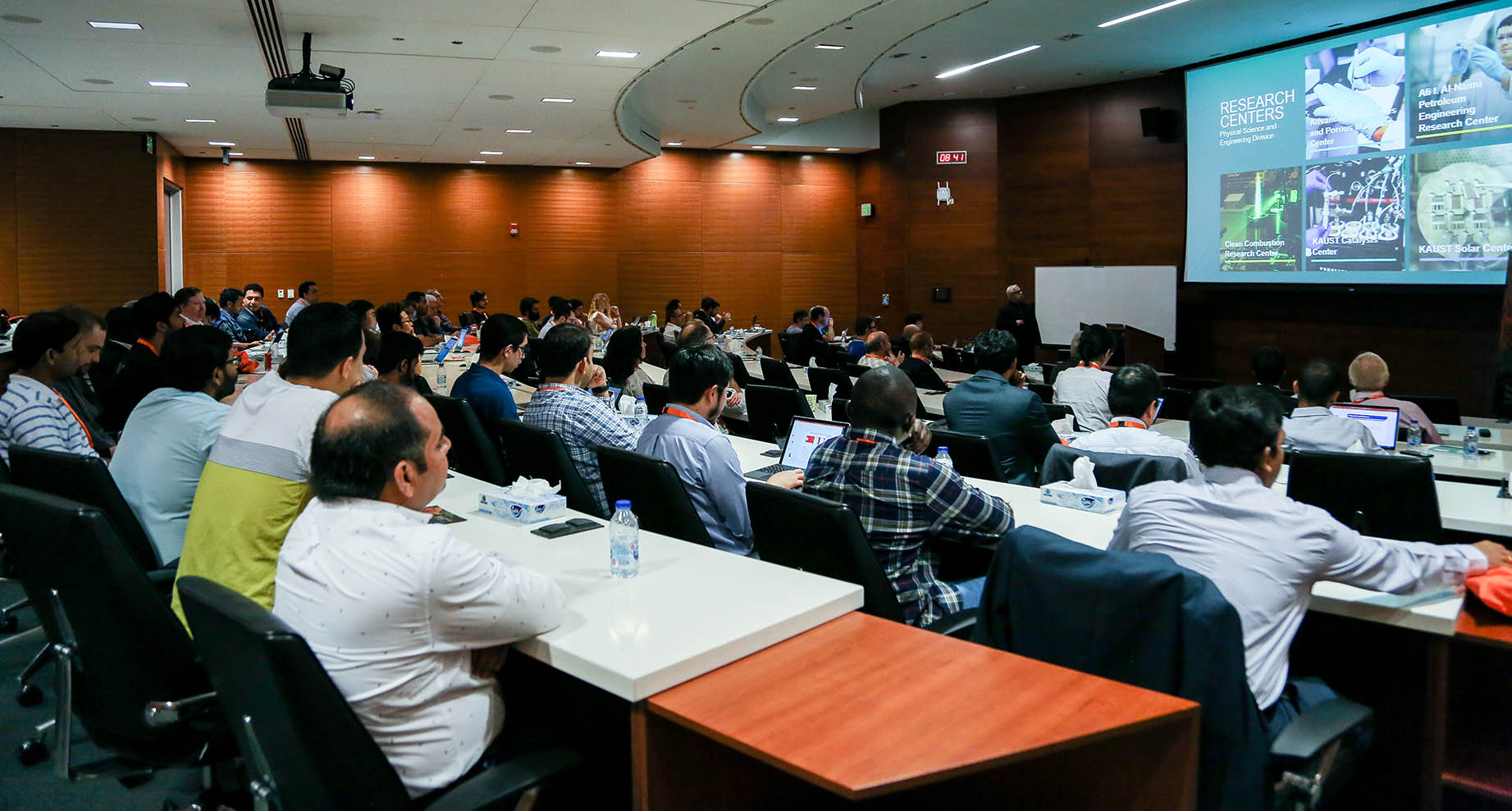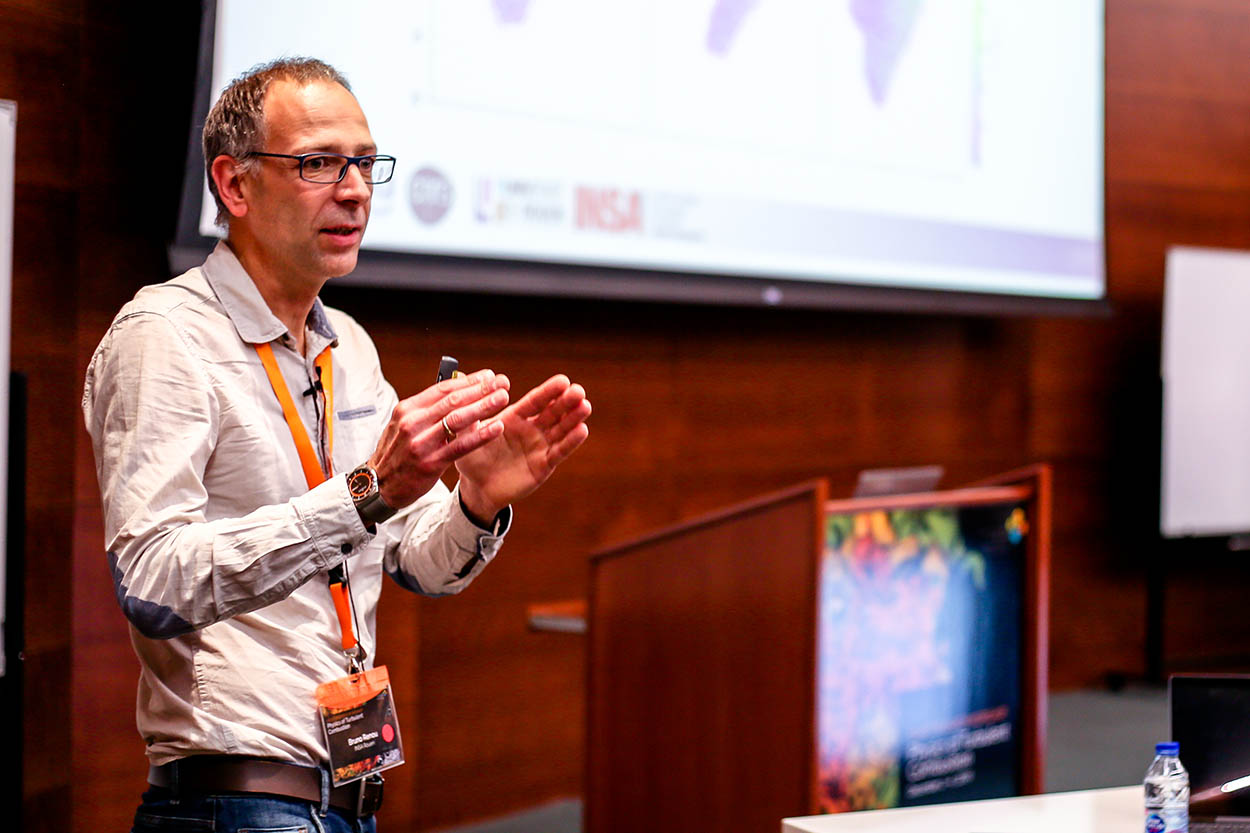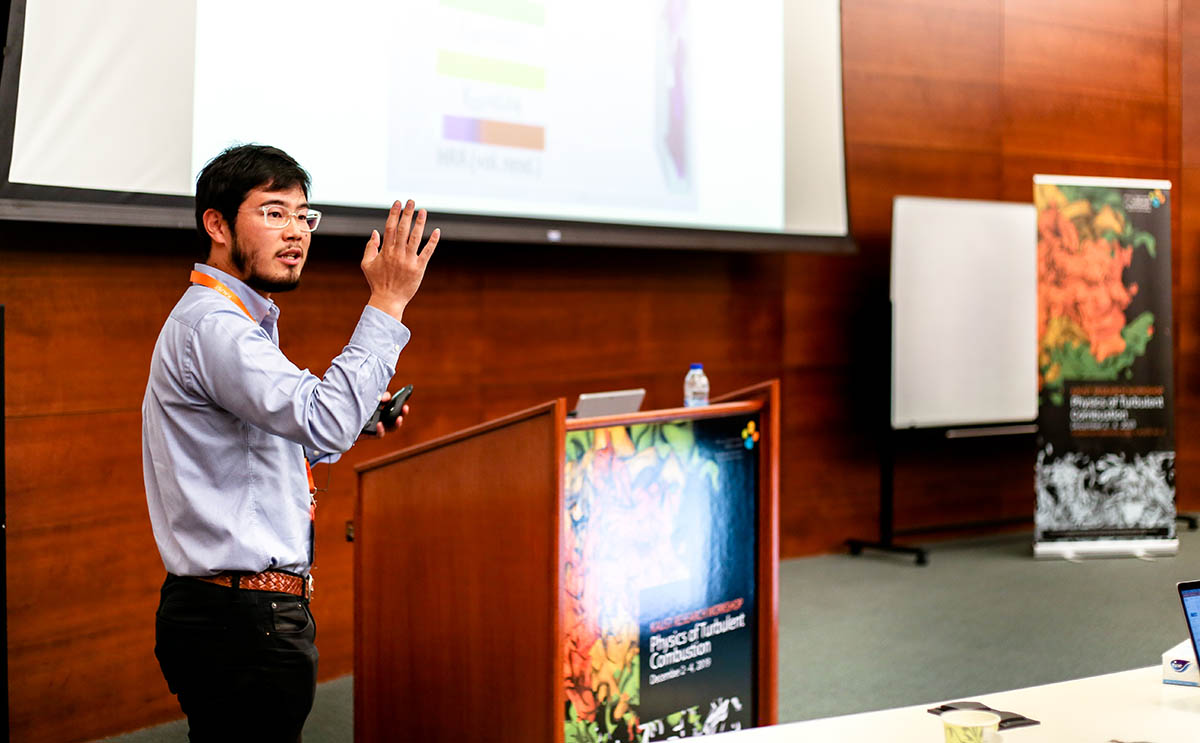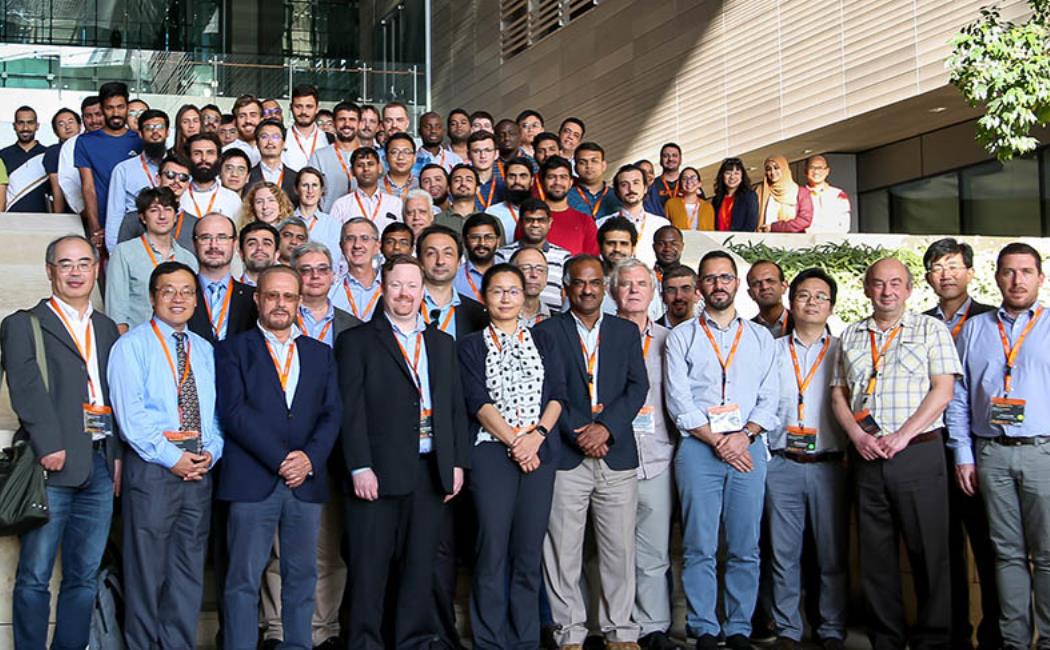CCRC hosted the first-ever KAUST Research Workshop on Physics of Turbulent Combustion in the first week of December 2019. Chaired by Prof. Hong G. Im, the workshop brought together worldwide experts in turbulent combustion research to identify the most significant scientific and engineering issues towards predictive modeling of turbulent combustion phenomena towards clean and efficient energy conversion.
The three-day workshop aimed to improve our current knowledge and capabilities in the description of turbulent combustion on the following themes:
- Physics of turbulent combustion:
- Advances in modeling and diagnostics for practical applications:
- Enabling technologies for large data and analytics:

Physics of turbulent combustion
Day one focused on fundamental observation and analysis of high fidelity simulation and experimental measurements, providing insight into our understanding of turbulent combustion at extreme conditions. The workshop began with a welcome address by Ravi Samtaney, Dean of the Physical Science and Engineering Divison at KAUST. Speakers of the day were
- Dr. Alexei Poludnenko from University of Connecticut, USA: Dynamics of High-Speed, Compressible Reacting Flows: Experimental and Numerical Studies Based on the Turbulent Shock Tube Facility
- Antonio Attili, RWTH Aachen, Germany: Turbulent Flame Speed and Reaction Layer Thickening at Increasing Reynolds and Constant Karlovitz Number.
- Francesco Creta, University of Rome, Sapienza, Italy: Role of Hydrodynamic/Thermal-Diffusive Intrinsic Instability in Turbulent Premixed Combustion Modeling
- Hong G. Im, KAUST, KSA: Direct Numerical Simulation of Engine Knock
- Yuki Minamoto, Tokyo Institute of Technology, Japan: Direct Numerical Simulation of Turbulent Combustion in a Simplified Combustion Chamber with a Crevice
- Vladimir Sabelnikov, ONERA, France: Can Two Classical Damköhlers' Hypotheses Hold Simultaneously?
- Xinyu Zhao, University of Connecticut, USA: The Role of Local Extinction in Global Flame Propagation
- Xue-Song Bai, Lund University, Sweden: Structures and Propagation of Reaction Fronts in RCCI Combustion
Advances in modeling and diagnostics for practical applications

Day two focused on the Advances in modeling and diagnostics for practical applications. In line with the progress in the fundamental understanding of turbulent combustion, state-of-the-art RANS and LES modeling practices in the academia and industry today were assessed and future direction for high impact predictive model developments was discussed. Speakers of the day were:
- Robert Barlow, Sandia National Laboratories, USA: Characterization of Multi-Regime Reaction Zones in a Piloted Inhomogeneous Jet Flame with Local Extinction
- Cesar Dopazo, University of Zaragoza, Spain: Deformation of Turbulent Premixed Flames
- Zhongshan Li, Lund University, Sweden: Laser-Based Flame Structure Visualisation for Quantitative Interpretation of Combustion in Small Scale Turbulent Flows
- Kelly Senecal, Convergent Science, USA: Progress in Turbulent Combustion Modeling for Industrial Applications
- Gaetano Magnotti, KAUST, KSA: High-Speed Filtered Rayleigh Scattering for Time-Resolved Temperature Measurements in Small Channels
- Andrei Lipatnikov, Chalmers University, Sweden: Mitigation of an Increase in the Reaction-Zone-Surface Area Due to Flame-Generated Vorticity
- Bruno Renou, INSA Rouen, France: Quantitative Imaging of NO Concentration in a Turbulent n-Heptane Jet Spray Flame
- Xiaoyi He, Air Products, USA: Challenges to RANS Models in Simulation of Turbulence near Porous Media Interface
- Isaac Boxx, DLR, Germany: An Experimental Study of Hydrogen-Enriched Natural Gas Swirl Flames in a Gas Turbine Model Combustor
Enabling technologies for large data and analytics

Day 3 focused on discussing the utilization of massive amounts of computational and experimental data, a new paradigm of non-physics based submodels relying on machine learning algorithms, and identifying the strategies to utilize these tools for academic and industrial applications. Speakers of the day were:
- Venkat Raman, University of Michigan, USA: Use of Data in Combustion
- Mani Sarathy, KAUST, KSA: Data Science Approaches for Fuel Combustion Modeling
- Tarek Echekki, North Carolina State University, USA: A New Framework for Experiment-based Turbulent Combustion Modeling
- Alessandro Parente, Université Libre de Bruxelles, Belgium: Integration of Machine Learning with Physics
- Mauro Valorani, University of Rome, Sapienza, Italy: Dynamically-Informed Data Analysis of Reactive Flows





